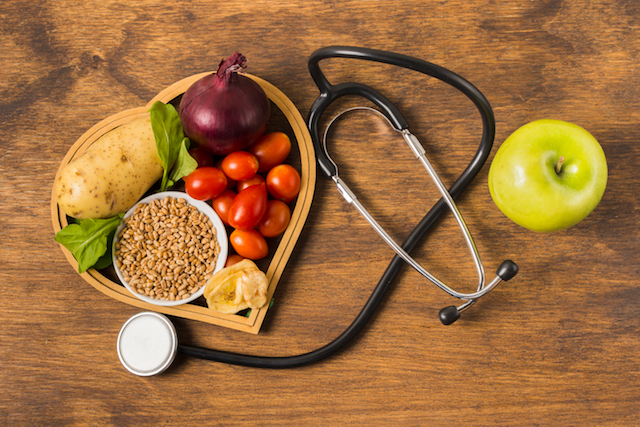DITCH THE JANUARY DIET: START YOUR NEW YEAR WITH A HEALTH EATING BANG | AFFINITY HEALTH
If your New Year’s Resolution is to lose weight, you may be tempted to follow a quick-fix fad diet, but Affinity Health, a leading provider of high-quality healthcare, says the chances of it working (and staying) are slim – so why not try something new this year?
Every January, we are bombarded with commercials for fad diets, weight reduction programmes, and healthy eating alternatives as businesses capitalise on people’s New Year’s Resolutions.

Affinity Health encourages South Africans to avoid fad diets this year and try something new.
“Research shows that two-thirds of people who follow an extremely restrictive diet regain all of the weight they lost and then some,” says Murray Hewlett, CEO of Affinity Health.
“The best diet is not a diet at all, but rather a way of life that includes eating foods you enjoy, exercising, and developing healthy behaviours.”
Affinity Health offers some simple, straightforward advice.
Eat A Varied Diet
Your body needs a proper ratio of protein, carbs, fat, and various other nutrients to function at its peak.
Every day, consume at least five servings of a variety of fruits and vegetables
Include high-fibre starchy foods like potatoes, bread, rice, or pasta
Include dairy or dairy substitutes
Consume beans, lentils, fish, eggs, meat, and other protein-rich food.
Choose unsaturated oils and spreads in minimal amounts
Drink plenty of fluids (at least 6 to 8 glasses of water a day)
Exercise Portion Control
Food portions have become bigger throughout the years. Fast-food restaurants are just some places where you may get supersized meals. Researchers discovered that portion sizes of hamburgers, burritos, tacos, french fries, sodas, ice cream, pie, cookies, and salty snacks grew from 1970 to 1990, regardless of whether the foods were consumed at home or at restaurants.
What is a healthy serving size?
A cup of fruit should be about the size of your fist.
A serving of cheese is roughly the size of your thumb from tip to base.
A standard portion of meat, fish, or poultry is about the size of your hand.
Say No To Unhealthy Fats
Reduce saturated fat intake from animal sources and avoid trans fats from fried foods, snacks, and fast-food products. Toss out high-calorie, high-fat, sugary foods that entice you to overeat, such as chips, cookies, crackers, ice cream, and sweets bars. Then stock your refrigerator and pantry with lean protein, fruits and vegetables, whole grains, legumes, nuts and seeds, beneficial fats, and fat-free or low-fat dairy products.
Consume Smaller, More Frequent Meals
Set a goal of five to six mini-meals every day. You should eat every three to four hours. Snack on low-fat cheese and whole-grain crackers, or consume a spoonful of peanut butter with one slice of whole-grain bread. Find items that are both healthful and filling. If you’re still hungry after dinner and want seconds, choose vegetables.
Keep An Eye Out For Additional Sugar
The American Heart Association advises fewer than 25 grammes of sugar per day for women and less than 36 grammes of sugar per day for men. However, it’s best to maintain added sugar intake as low as possible for maximum health.
Sugar is added to many foods, like cookies and ice cream, but it is also in bread, crackers, and yoghurt. Added sugar appears on food labels under a variety of names, including honey, agave, invert sugar, sucrose, and fructose. When possible, use reduced sugar options.
Stay Active
Getting at least 150 minutes of moderate-intensity exercise per week can greatly reduce your risk of heart disease and stroke. That’s slightly over 21 minutes per day, and it can include any exercise that raises your heart rate, such as fast walking or housework. Regular exercise also benefits your bones and can help you sleep better. Moving your body can also help improve your mental wellness.
Seek Expert Assistance
If you need help implementing good behaviours and are overwhelmed by diet culture nonsense, try consulting with a certified dietitian to help you break down health advice and sustainably reach your goals.
About Affinity Health
Affinity Health is South Africa’s leading health insurance provider, offering you a range of options at affordable rates, including access to the widest national provider network. We understand the importance of medical insurance that meets your needs, budget, and lifestyle. Our range of healthcare products are designed to protect you and your family when it matters the most. We strive to give our clients peace of mind and the highest standard of service at all times. For more information, follow us on Facebook, Twitter, and Instagram.